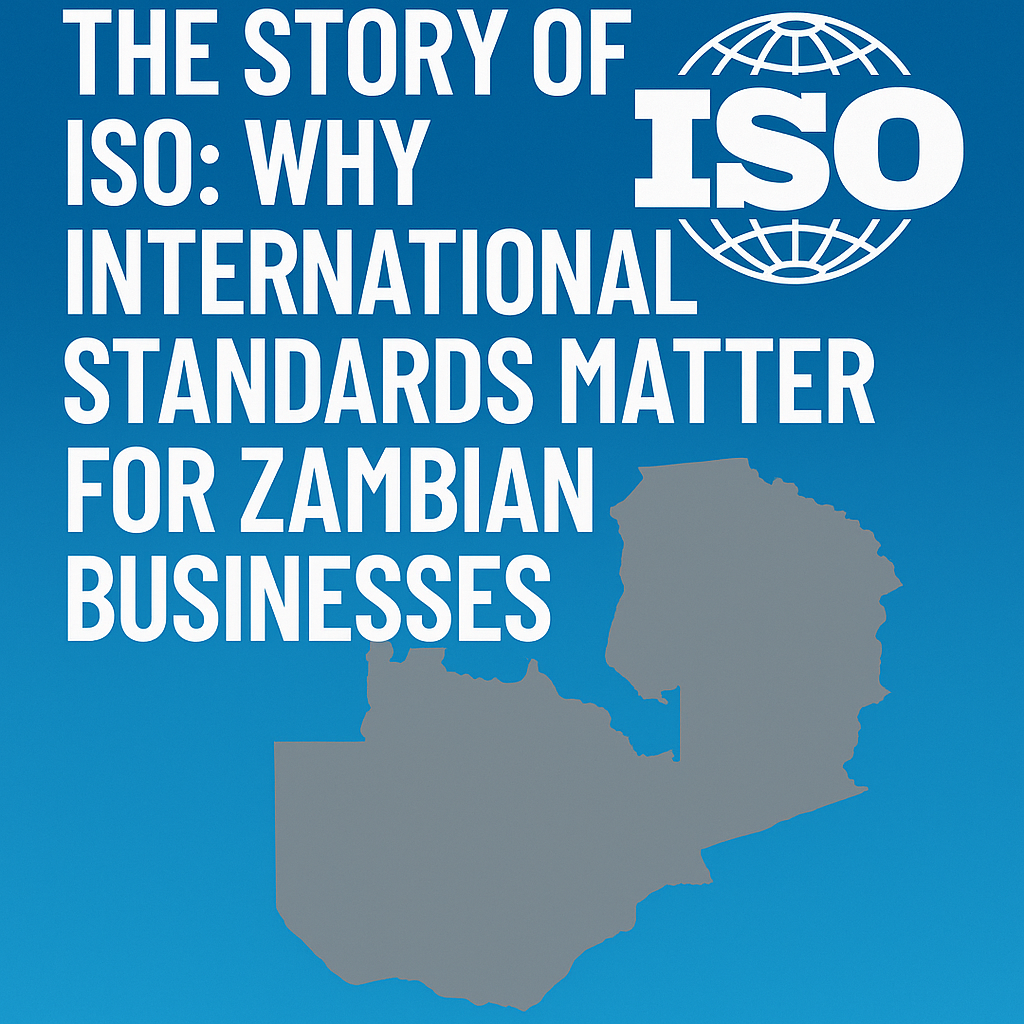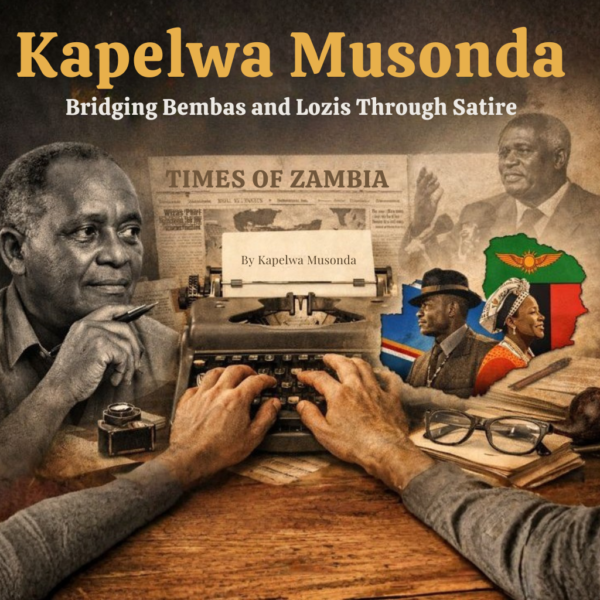By KitweOnline.com
Introduction
A man left his bicycle out on a sunny day and found it so warped that he couldn’t ride it home. A mother bought chicken and was told to cook it within 24 hours or else it would disintergrate. A man bought eggs for his family but later discovered that they were articial shells and yolks put together in a factory. Stories like these make you start wondering how you are going to tell truth from fiction.
When you buy a bolt in Kitwe, a gearbox in Luanshya, or a smartphone from Japan, you expect them to work exactly as intended — safe, reliable, and compatible. But have you ever wondered how different companies across the world manage to make their products fit together?
The answer lies in ISO — the International Organization for Standardization. ISO has quietly shaped the way the world trades and collaborates, making sure that products and services meet globally accepted benchmarks. For Zambian businesses, big or small, ISO awareness is more than just a “foreign concept” — it is the key to building trust, improving quality, and opening doors to international opportunities.
In this article, we trace the story of ISO, explain why it matters, and show how Zambian entrepreneurs can benefit from embracing ISO standards.
The Birth of ISO: A World in Need of Common Standards
The year was 1946, and the world was recovering from the devastation of World War II. Nations were rebuilding industries and reopening trade routes. But there was one big problem: every country had its own technical standards.
A simple thing like a screw thread, a railway track gauge, or an electrical plug could vary wildly from country to country. This made trade messy and expensive. Imagine a farmer in Zambia wanting to buy spare parts from Europe, only to find they didn’t fit because the dimensions were different!
To solve this problem, delegates from 25 countries met in London to create a single international body that would unify standards. In 1947, the International Organization for Standardization (ISO) was born, with its headquarters in Geneva, Switzerland.
The name “ISO” was not chosen as an acronym. Instead, it comes from the Greek word isos, meaning “equal” — a reflection of its mission to create equal, consistent standards worldwide.
The Growth of ISO
From that humble beginning, ISO has grown into the largest developer of international standards in the world, with over 24,000 published standards and 170 member countries, including Zambia through the Zambia Bureau of Standards (ZABS).
ISO standards now cover almost every aspect of daily life and industry:
- ISO 9001 – Quality Management Systems
- ISO 45001 – Occupational Health & Safety
- ISO 14001 – Environmental Management
- ISO 22000 – Food Safety
- ISO 27001 – Information Security
- ISO 50001 – Energy Management
These standards provide a common language of trust, ensuring that businesses in Lusaka, Kitwe, or Tokyo can trade with confidence.
Why ISO Matters for Zambian Businesses
For Zambian entrepreneurs, ISO might sound like something only “big multinationals” need to worry about. But that’s not true. Even small businesses can benefit enormously by understanding and applying ISO principles. Here’s how:
1. Building Client Confidence
When a company says it follows ISO standards, it signals to customers: “We take quality and safety seriously.” This builds trust, which is vital in competitive markets. For a machining and fabrication business like SKM Creations Ltd, ISO-aligned processes mean clients are more confident to place big orders.
2. Access to Bigger Contracts
Large mining companies, government tenders, and international investors often require suppliers to demonstrate ISO compliance. Even if your company isn’t formally certified, showing ISO awareness and aligned practices makes you more competitive.
3. Improving Efficiency
ISO standards promote structured processes, record-keeping, and accountability. For example, ISO 9001 encourages businesses to monitor how work flows, identify bottlenecks, and improve efficiency. This means less waste, lower costs, and higher profits.
4. Enhancing Workplace Safety
Workplace accidents are not only tragic but also expensive. ISO 45001 provides a framework for safe working conditions and risk management, protecting staff and preventing costly disruptions.
5. Preparing for the Future
As Zambia integrates further into the global economy, ISO awareness will become increasingly important. Businesses that start adopting these practices now will be ahead of the curve when competition intensifies.
A Zambian Example: SKM Creations Ltd
Let’s bring this closer to home. Imagine SKM Creations Ltd, a machining and fabrication workshop in Luanshya.
- By following ISO 9001 principles, they ensure that every agricultural machine they design meets consistent standards. This means fewer breakdowns and happier clients.
- By applying ISO 45001, they reduce the risk of accidents in the workshop, protecting employees and ensuring compliance with labour laws.
- By moving towards ISO alignment, they can confidently bid for bigger contracts with mining companies or government agencies.
In this way, ISO is not an abstract idea — it’s a practical tool for growth and competitiveness in Zambia.
The Future of ISO in Zambia
The Zambia Bureau of Standards (ZABS) plays a key role in promoting ISO standards locally. They offer certification and guidance to businesses that want to align with international practices.
But the bigger opportunity lies in awareness. Many small and medium-sized enterprises (SMEs) don’t realize that simply adopting ISO principles — even without full certification — can transform their operations.
For example:
- Keeping proper records of jobs and materials (ISO 9001 principle).
- Conducting regular safety drills (ISO 45001 principle).
- Ensuring waste is properly managed (ISO 14001 principle).
These small steps create a culture of quality and safety that clients notice.
Conclusion
The story of ISO is the story of the world learning to work together through shared standards. From its beginnings in 1947 to its role today, ISO has been about creating trust, efficiency, and fairness in trade.
For Zambian businesses, ISO is not just about “certificates on the wall.” It’s about:
- Winning trust
- Improving systems
- Growing safely
- Opening doors to international opportunities
At KitweOnline, we believe that the future of Zambian industry depends on adopting global best practices while staying rooted in our local strengths. ISO is one of the bridges that can help us get there.


